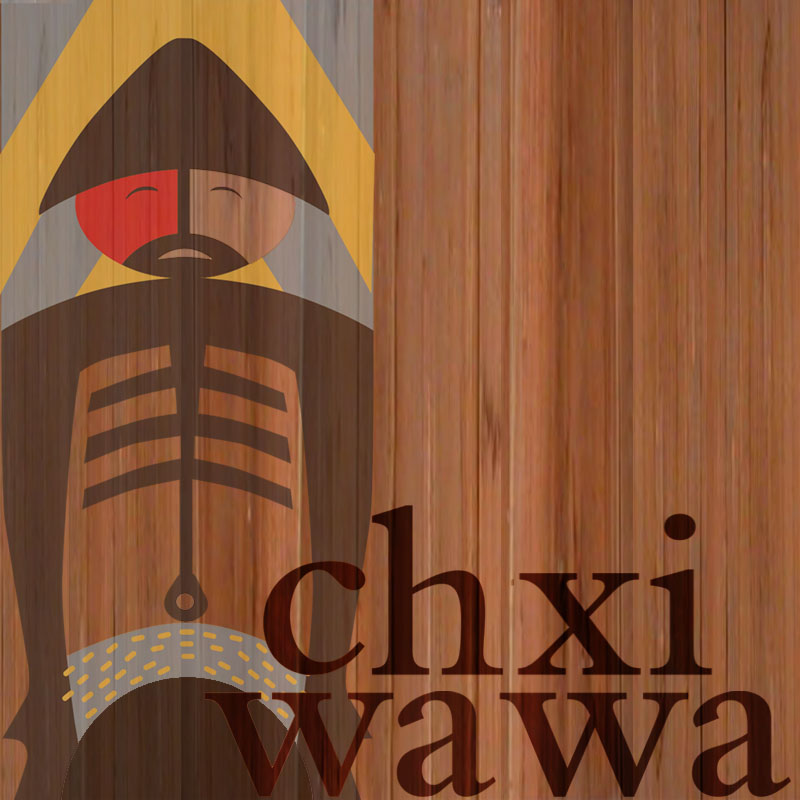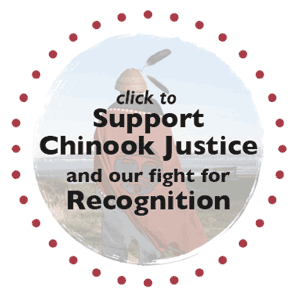Richard Arlin Walker
Special to ICT
It’s Monday, Jan. 13, and only the presence of movers would tell you that Roger Nyhus’s tenure as U.S. ambassador to Barbados and the Eastern Caribbean ends Jan. 20 with the change in presidential administrations.
After this interview he’ll finish writing his departure cable, essentially a final report on issues the next ambassador should be aware of, then talk on CBC Barbados about his year of strengthening ties and fostering collaboration between the U.S. and Barbados and the Eastern Caribbean.
On Wednesday, Jan. 15, he planned to visit Antigua and Barbuda to sign a clear skies agreement, which will ease flight restrictions and allow more affordable and accessible air travel between that nation and the U.S., in turn promoting tourism and economic growth. He planned to return to Barbados on Thursday, Jan. 16., to host Prime Minister Mia Mottley and her family for dinner. Then, the next two days he planned to make a final visit to St. Kitts and Nevis, two more of the seven nations in his portfolio.
It’s a typical whirlwind week for him.
Nyhus’s ambassadorship has been like this since he arrived Jan. 19, 2024. Since then, he introduced a U.S. partnership to improve court system efficiency in Barbados; accompanied U.S. Customs and Border Protection officers in an air search for drug traffickers; promoted U.S. business investment in the region; and brought U.S. Interior Secretary Deb Haaland to Antigua for a gathering of island nations to discuss investments in climate change adaptation and sustainable development.
He secured $1 billion in Export-Import Bank financing for cybersecurity and renewable energy; delivered $2 million in U.S. assistance to Grenada and Saint Vincent and the Grenadines to help communities affected by Hurricane Beryl; hosted a U.S.-Eastern Caribbean workshop on security initiatives in the region; and delivered U.S. investments in military and law enforcement training and boats.
Serving as ambassador was meaningful to him in a deeply personal way: He is a citizen of the Chinook Nation, one of about five Native Americans who’ve served as a U.S. ambassador, according to the U.S. State Department. He forged a personal relationship with the president of Dominica, who is an Indigenous Dominican (Kalinago), and spent time with the chief of the Kalinago people.
Nyhus – a 56-year-old Washingtonian – spoke to ICT on Jan. 13 and talked about the importance of U.S.-Eastern Caribbean relations, the growing presence of China in the region, and why he considers Barbados to be his second home.
ICT: In an earlier interview with us, you talked about how your Native heritage influences the importance you place on relationship-building.
Nyhus: Probably one of the smartest things I did in my tenure is, before I got here, I knew that I would have to give a gift to each of the prime ministers – seven of them. And so I commissioned glass eagle feathers from a Lummi artist, Dan Friday. I gave him the color palette from the Caribbean flags and he created a custom feather for each country, with that country’s colors and they were beautiful. I had some extras made in case.
Before I had a chance to give one to any prime minister, I had a meeting with Rihanna. She’s so incredibly impressive and we had this wonderful conversation. She’s been deemed by the government of Barbados as a National Treasure and I gave her one of the feathers. I wrapped it in this special box and I put the artist’s bio in the box and, unbeknownst to me, within the next two months she reached out to Dan directly and said, “I love your work. The next time I’m in Seattle, I want to come visit your studio.” Isn’t that amazing?
I had seen Dan’s work and admired it for years, and when I got the job, I was like, “I’m going to do something really remarkable that honors my Native heritage” and I went to Stonington Gallery in downtown Seattle and I said, “Would you be willing to partner with me on this idea?” And they did. And it was such a huge hit.
ICT: Building official relationships is an important part of being an ambassador. What personal relationships did you establish during your tenure that you expect will continue post-ambassadorship?
Nyhus: Relationships are everything. I think of a very recent trip to Dominica, which is the homeland of the Kalinago Tribe. I met and spent time with the chief and a bunch of school kids as well as the president of Dominica. She is Kalinago as well. And there was a kinship – even though we’re from worlds apart – just understanding what the Kalinago people are going through and how it relates to my own tribe, the Chinook people. It really impressed on me the importance of not just showing up, but engaging and maintaining those relationships, which I very much plan to do after I’m done with my current post.
I think of the relationships in Barbados. Barbados is my second home; I’ve never lived in a foreign country before. This is the first time I’ve lived outside of Washington state, with the exception of a brief time in Alaska. The president of Barbados, Dame Sandra Mason, literally took me under her wing. I had her and her family to dinner this last week, and this coming week, on Thursday, I’m having dinner with the Prime Minister’s family. The Prime Minister’s mother calls me her son. Coming here as a single person who knew absolutely no one in the country and to be welcomed so warmly – and it’s not just because I’m the U.S. ambassador – is just incredible.
ICT: You are the second Chinook Nation citizen to serve as a U.S. ambassador; the first was the late Christopher Stevens, who was killed in Libya in 2012. Talk about the significance of that and what you hope it tells people about the Chinook Nation.
Nyhus: One of my cousins did the family tree for me and said, “You know, you and Chris are fourth cousins.” I knew we would be related somewhere, because it’s a small tribe, but I didn’t know we were that close. His death really transformed how the State Department views security of ambassadors. I spoke with his sister before I came here and she said, “Don’t forget Chris.” And I did not forget Chris. I kept his ambassadorial photo on my desk. I brought him with me on this journey.
This has been an incredible experience. It was only a year, but you know, one of the greatest compliments I’ve received came from local people who said, “You’ve done more in a year than other ambassadors did in many years,” and I think there’s some truth to that. And so I feel like I’m leaving this having accomplished more than I could have hoped. And I hope that translates into positive momentum for the Chinook Nation as we seek re-recognition by the federal government.
ICT: What happens now? Do you file some kind of a final report or something that says, “These are some things you might want to keep on your radar”? I know China has been strengthening its presence in the Caribbean, and the incoming administration is particularly concerned about that. How do you close this out?
Nyhus: Today, I have been writing what we call a departure cable, which is essentially my unvarnished recommendations to the State Department writ large. It’s my take so, you know, people can take it or leave it, but it’s my opportunity to kind of hopefully help the next administration because we want the U.S. to be successful here, because if we’re not successful, others like China will fill the void. The cable is designed to be a bit of a red flag, to say, “Hey, you should pay attention to these issues.”
ICT: What are some of the things that you are most pleased with that you were able to accomplish in your tenure? And as you prepare to leave, what are some concerns you have about the region?
Nyhus: I think that the biggest accomplishment by far was the signing of nearly $1 billion in EX-IM Bank financing for the region. Up to $500 million was for Barbados and up to $300 million was for St. Kitts and Nevis. That money is focused on energy transition, climate resilience, boats and planes that are used for search and rescue. That’s huge. That is probably the biggest influx there of potential U.S. dollars in decades, so I am absolutely most proud about that.
I am concerned about how aggressive China is pushing in this region. We see it every day and I don’t think there’s enough attention paid to that by the U.S. government at this point. The largest building in the entire country of Antigua and Barbuda is the Chinese Embassy. Think about that – just the optics alone. They’re sending a message that they’re here and they’re doing whatever they’re doing.
This region is on the front lines of climate change. We saw it with Hurricane Beryl that hit the region this summer. It was the largest, most powerful storm in recorded history in this region and it luckily missed the major populated areas but it caused significant damage. I think that’s another big concern.
I think because these countries are small, they don’t have a lot of resources to go around. So often, security and military are kind of short changed and you end up with big gaps in the region which create opportunities for traffickers of drugs, guns, people. That is a major concern.
Illegal fishing is another major concern. The fishing industry here is all mom-and-pop operations. So, if you have a factory trawler out there scooping up all the fish, that impacts real people in these countries. I’m concerned about that.
I’m also concerned that these countries are very dependent on tourism. I think having more diversified industries would be really beneficial and I think the U.S. private sector could play a role there, but there are so few American companies here. You see American companies in the travel and tourism sector, you see it in fast food, but you just don’t see a lot of other U.S. companies. I think that’s an opportunity, but it’s also a concern that if we don’t get more engaged, the countries there will continue to be at the mercy of the weather. And when there’s a weather event, their entire economy shuts down.
ICT: You’re a 56-year-old soon-to-be former U.S. ambassador. You’ve built your own communications company. You’ve served as communications director for a Seattle mayor and a governor of Washington. What is next for you?
Nyhus: I would say stay tuned, because I am focused on finishing strong here and I haven’t begun to consider my next steps.
Serving as an ambassador was an amazing, incredible opportunity, but it’s not something that I sought out. I was offered the opportunity by President Biden, and while I wouldn’t seek another ambassadorship, if I were invited, I would absolutely serve.
I think there’s some type of public service in my future, but it’s too soon to tell what that would be.
ICT: How do citizens of the Eastern Caribbean nations view the U.S. and Americans?
Nyhus: I think there is a great affinity to the United States. I think every person that I have met here has family living in the U.S. and has visited. I think there’s a misconception that everyone here wants to live in the U.S. I don’t think that’s true. I think that they want to be able to visit family and shop here, and I think that the perception of the United States is very strong, but I do think it’s not as strong as it used to be. I think that’s because we haven’t been consistent in our attention and care for this region and others are filling the void, and that is predominantly China. So, part of my message to the future ambassador is, we need to do more to raise the visibility of this region in Washington, D.C., because it’s a very important region and it gets overlooked at times.
ICT: So readers understand what’s at stake, can you explain why we should be concerned about an increased presence by China in the Caribbean?
Nyhus: China is not a democratic country and does not share our values. And I think we see what happens when China is left unchecked. There’s no question that China uses its influence to pressure these countries into voting for it in international forums like the United Nations and these countries tend to vote more with China than they do the United States already. And that’s because of financial pressure.
You know the Belt and Road Initiative; that’s China’s big economic influence package. They do it all over the world. What they do is they’re like, “We’ll build housing for you,” which the countries want. But then they bring only Chinese workers. They don’t hire local people. And so there’s very little economic benefit locally. And then the quality of the construction is not good. They don’t have worker safety rules. There’s lots of issues like that.
ICT: According to a source, it’s widely assumed by security observers that the Chinese Embassy in Antigua is being used for intelligence gathering.
Nyhus: I can’t speak to that. But Antigua and Barbuda is a tiny country [an area of 170 square miles with a population of 100,000]. Why does China need that big of a building for an embassy there? They say it’s for location, so people, Chinese people, can go there if there’s a natural disaster. That doesn’t make any sense.








